UN committed to delivering aid to Afghanistan despite Taliban bans on women
The United Nations and its partners have reaffirmed their commitment to delivering aid and services to Afghanistan despite the de-facto Taliban government's decision barring women from working in humanitarian NGOs.
Speaking to reporters on Thursday, the United Nations Resident and Humanitarian Coordinator for Afghanistan Ramiz Alakbarov said that “humanitarian needs are absolutely enormous” and it important the rights of women and girls in Afghanistan should be “absolutely preserved.”
His remarks came after a statement from the Group of 7 (G7) countries, which condemned the decision of the Taliban government in Kabul, terming it "reckless and dangerous" and told the Taliban to 'urgently reverse' the ban on women aid workers in the country.
"Unless they participate in aid delivery in Afghanistan, NGOs will be unable to reach the country’s most vulnerable people to provide food, medicine, winterization, and other materials and services they need to live," said the G7 statement.
Alakbarov, however, stressed that the "humanitarian needs" of the people in Afghanistan are "absolutely enormous" and "it's important that we continue to stay and deliver", adding that the UN and its allies are committed to providing services to save the lives of the Afghan people.
"We do not believe that it is possible to deliver comprehensive humanitarian action without the participation of women," he stated.
"Aid is never conditional. You cannot condition providing food or health assistance to a starving person or a dying person."
He said the UN Emergency Relief Coordinator and other UN officials would travel to Afghanistan in the coming weeks to hold talks with Taliban officials, who recently also imposed a ban on women from university education.
Alakbarov stated that it is impossible to provide health services to women and girls without medical staff, noting that the health minister in the Taliban government agreed there should be no barriers to women service providers returning to work in the future.
"We are working under one thing only, and that is the resolution of the bottleneck and getting negotiations going so the women can go back to work and girls can go back to school, based on an understanding that this is an absolutely essential right of other people," said Alakbarov.
"We need to focus on finding the solutions."
On Saturday, Afghanistan’s ruling Taliban obliged all local and foreign non-governmental organizations (NGOs) to bar their female employees from coming to work, citing some female employees’ failure to observe the Taliban dress code for women.
The ban on female staff in NGOs followed a similar one by the Taliban on Tuesday that prohibited university education for women.
Almost all the large NGO aid agencies operating in Afghanistan have suspended virtually all their work even as millions of people are in need of humanitarian assistance in harsh winter conditions in the country.
The agencies say that under Afghanistan’s customs, they cannot provide vital services such as health advice to women without female staff or doctors.
The halt in UN programs came as the foreign ministers of 12 countries and the European Union (EU), including the United States and Britain, urged the Taliban to reverse its decision barring female employees of aid groups.
It comes as the United States continues to freeze the assets belonging to Afghanistan's central bank, which has precipitated the crisis.
Trump plans to establish 'massive' military base in southern Gaza: Report
NYT questions Trump’s justification for threatening war on Iran
VIDEO | Press TV's news headlines
Araghchi stresses efforts to draft negotiating text between Iran and US
Over 150 ex-diplomats slam French FM's 'disinformation’ about UN’s Albanese
Alawite women abducted and raped, others sold by Jolani's men: Report
Iran, China, Russia hold trilateral talks on Geneva nuclear negotiations
VIDEO | Protests and skepticism greet Trump’s 'Board of Peace'


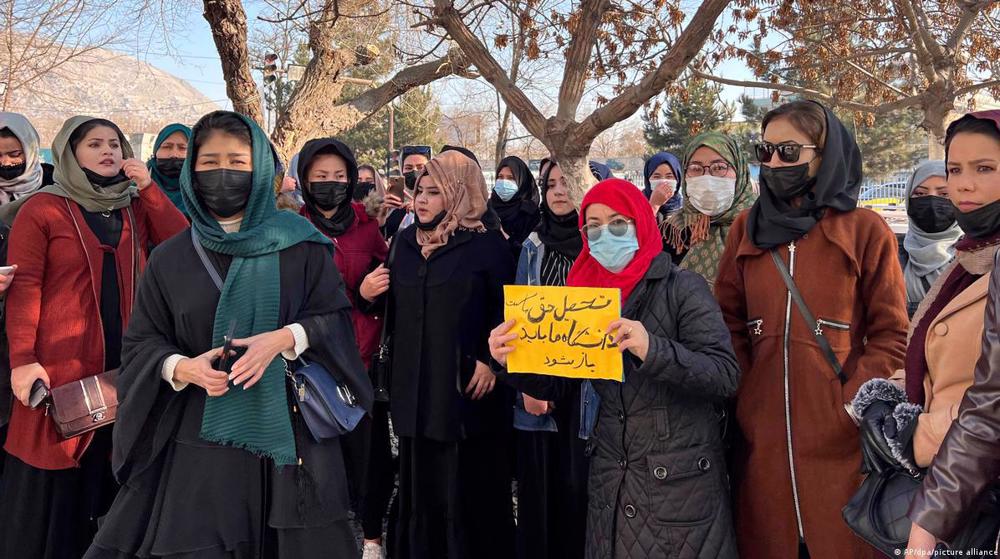
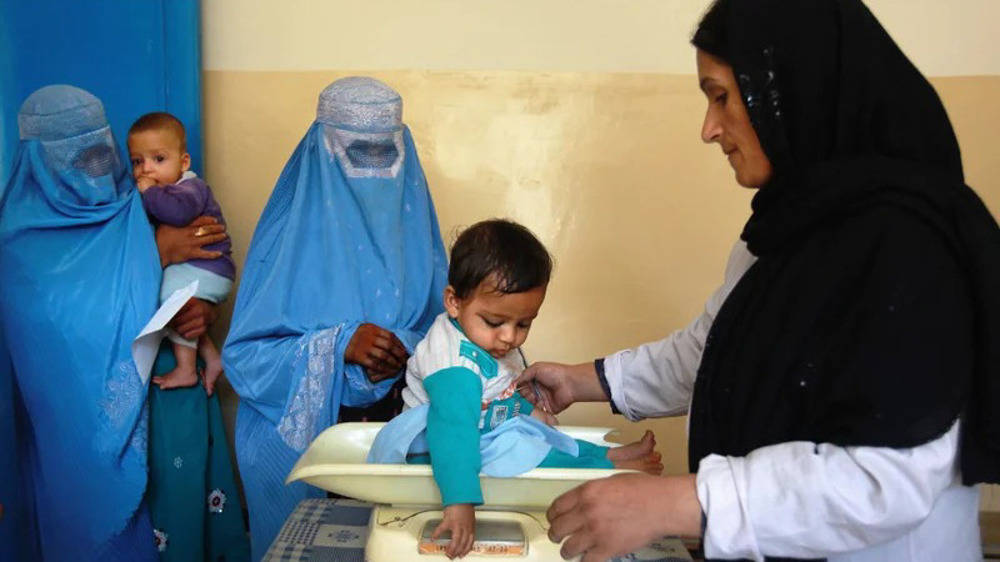
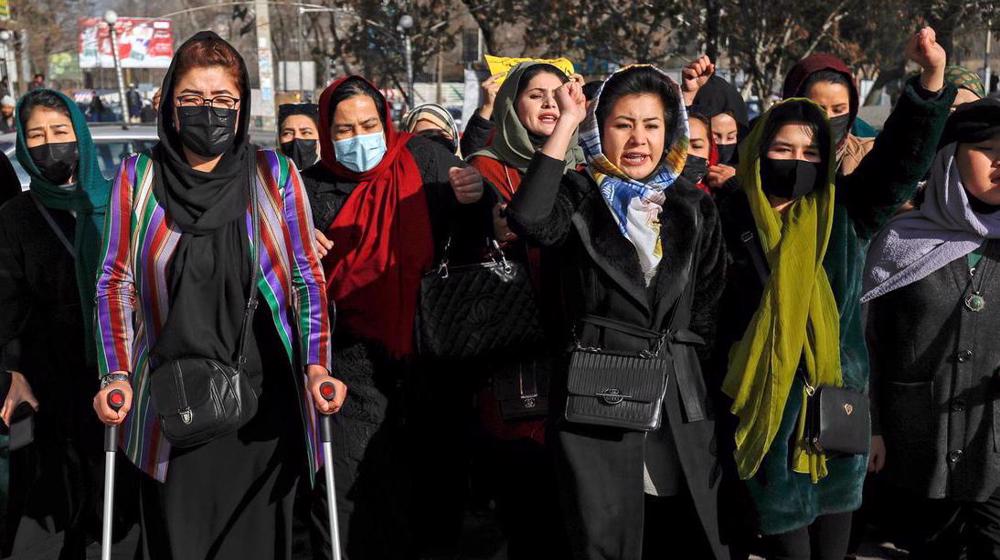
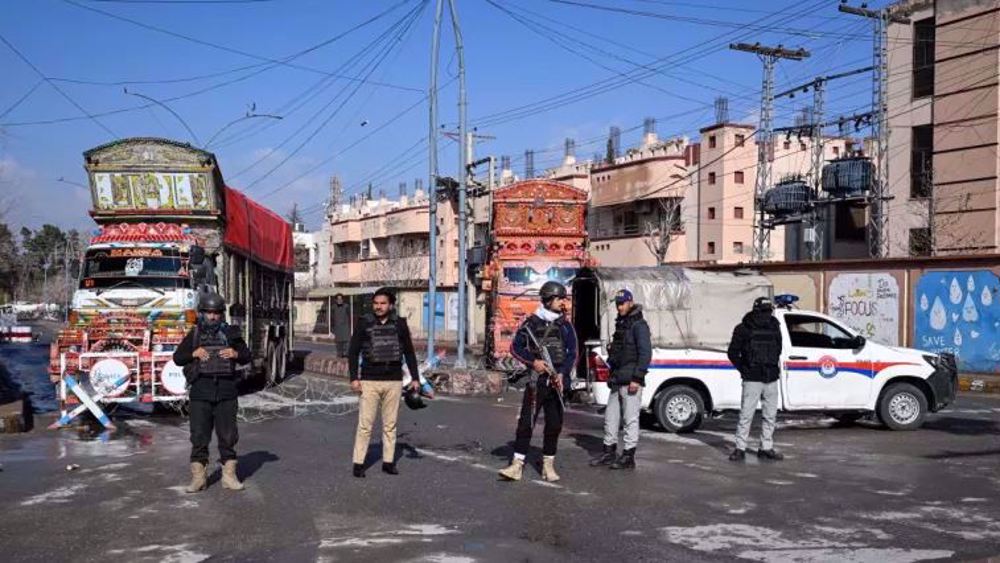

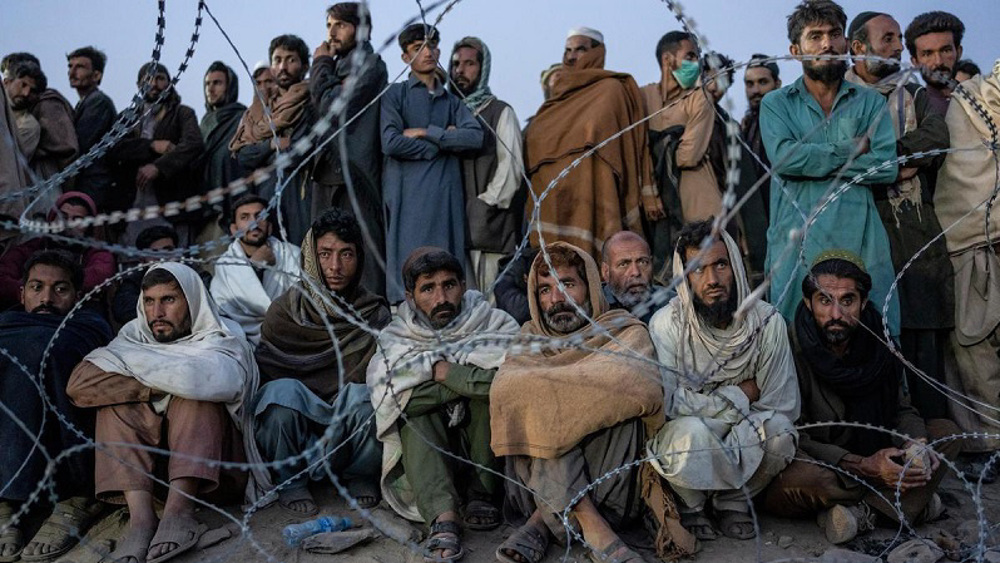



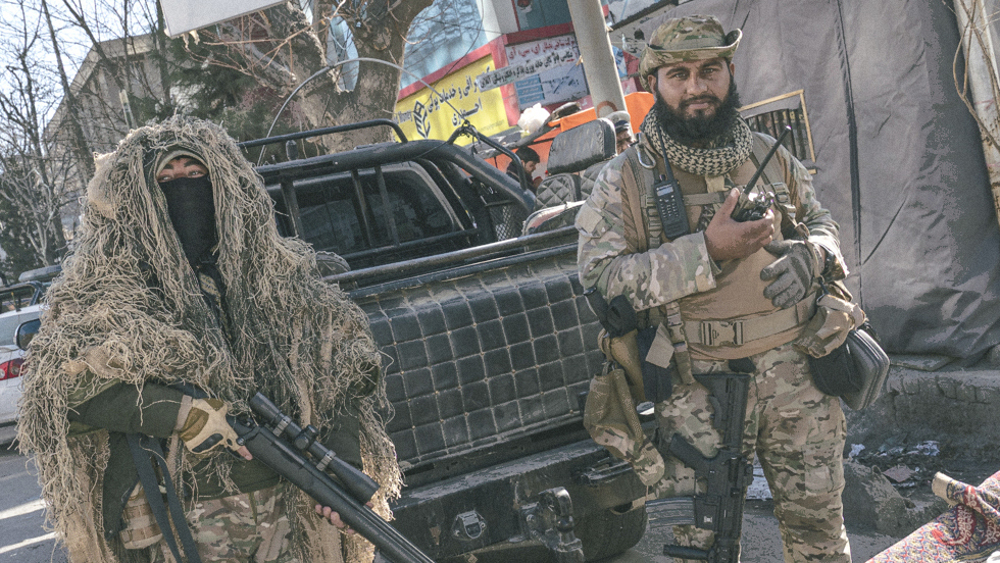

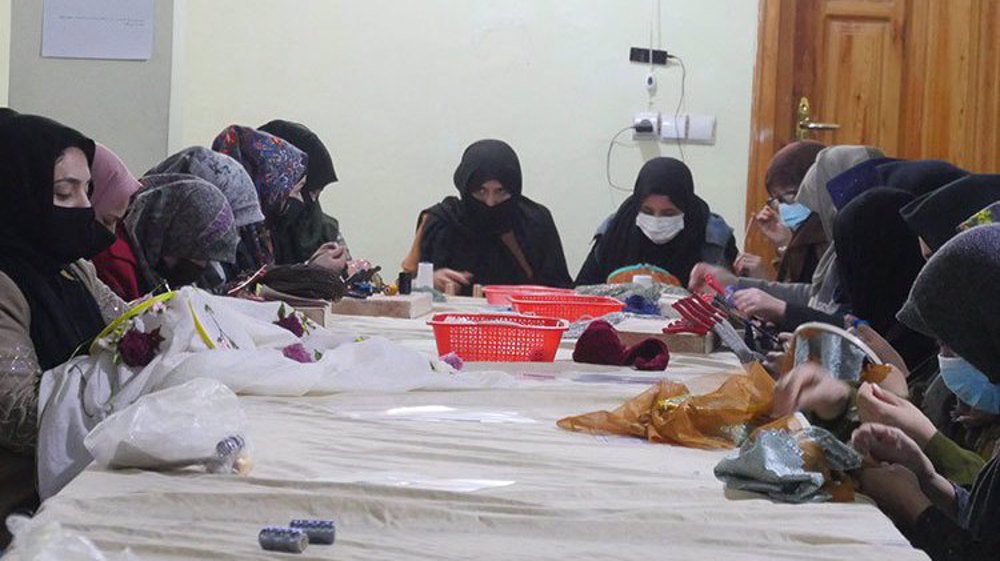

 This makes it easy to access the Press TV website
This makes it easy to access the Press TV website